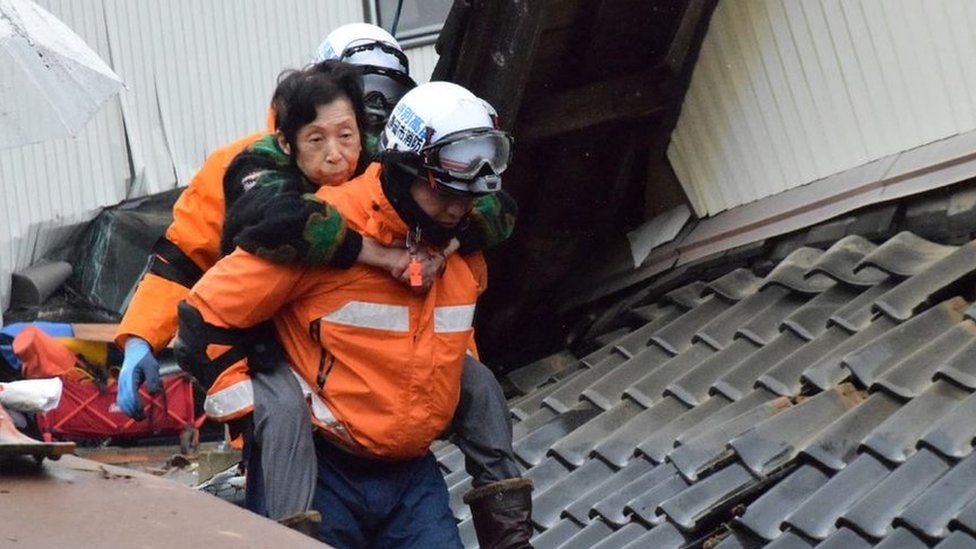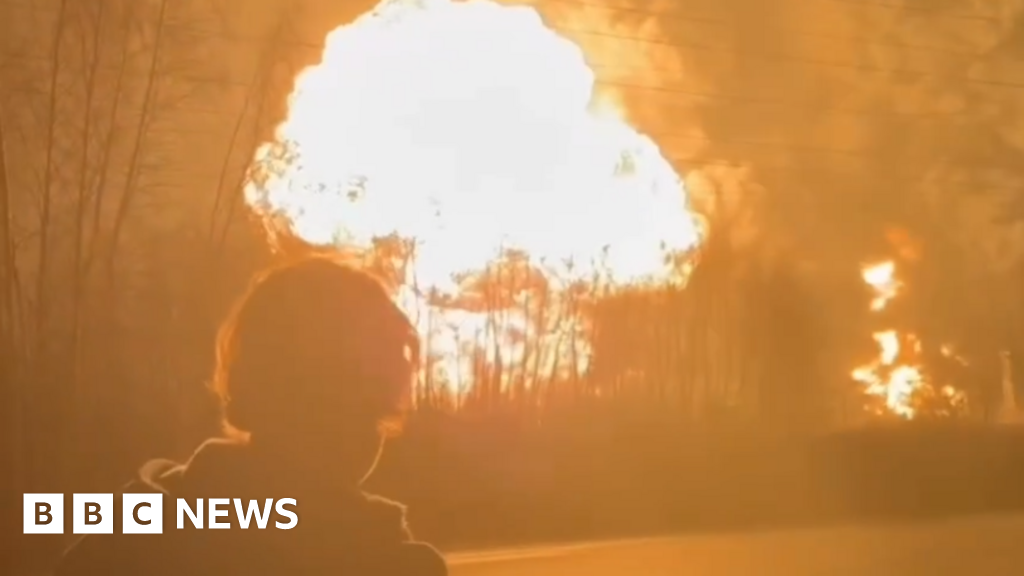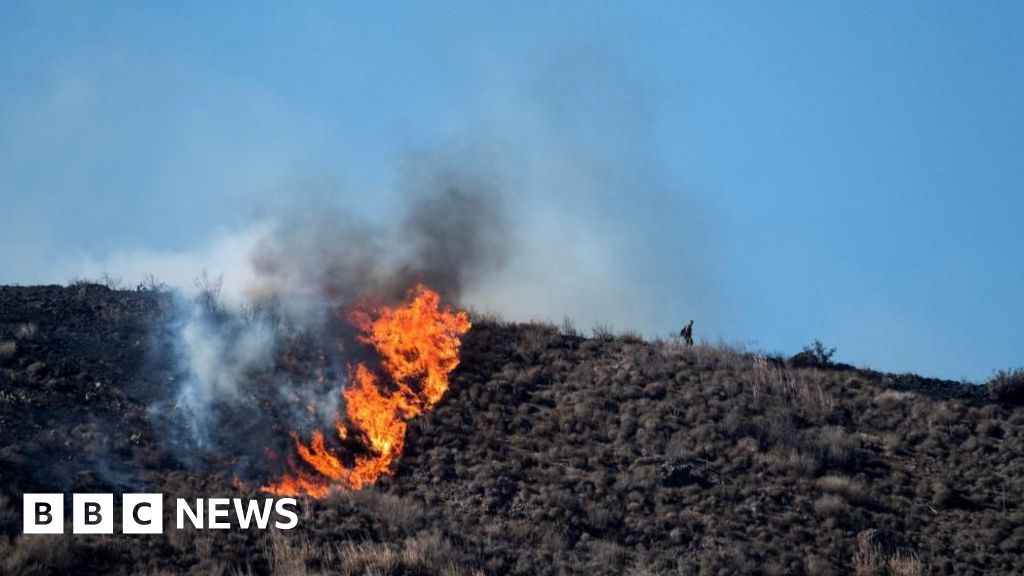ARTICLE AD BOX
 Image source, Getty Images
Image source, Getty Images
The first 72 hours are critical for rescues as the prospects of survival drops substantially after that
By Jean Mackenzie & Kelly Ng
in Wajima and Singapore
Rescuers in Japan are racing against time in their search for survivors of a New Year's earthquake, as a critical three day window has now closed.
At least 77 people were killed when a 7.6 magnitude earthquake hit the remote Noto peninsula on Monday at 16:10 local time (07:10GMT).
Many people thought to be trapped under their collapsed homes - mostly in the cities of Suzu and Wajima.
After 72 hours, the chances of finding people alive drops substantially.
Tens of thousands of residents are still without power and water, while hundreds remain isolated from help due to landslides and blocked roads.
Japan's Prime Minister Fumio Kishida had earlier on Thursday said 150 people had been rescued so far, and that rescuers would continue with their full-scale efforts to save as many as possible.
"This is a very difficult situation. But from the viewpoint of protecting lives, I ask that you make every effort to save and rescue as many lives as possible by this evening, when the critical 72 hours of the disaster will have passed," he said.
The tremor on Monday, which was followed by a series of aftershocks, injured at least 330 people, according to AFP news agency.
More than 30,000 people in the quake-affected areas are still in shelters, with some towns lacking water, electricity and internet connection.
Meanwhile stories of dramatic rescues have been going viral online. A video posted by Peace Winds Japan, a local NGO that helped with the rescue, show several rescuers ploughing through layers of collapsed furniture to rescue a woman trapped under her home. They then wrapped a thick blanket around her.
The BBC saw extensive destruction on a visit to Wajima on Wednesday, where homes and vehicles were crushed under crumbling concrete.
The city with a population of about 23,000 now resembles a ghost town as most heeded the early warnings to evacuate, when tsunamis were forecast.
But it has still recorded the largest death toll so far, with more than three dozen confirmed fatalities, but that number is expected to rise. Some parts of the town are still cut off by ruptured roads and landslides, with help unable to reach people.
Shigeru Sakaguchi, mayor of Wajima, said food and other aid supplies have reached only 2,000 out of 10,000 evacuees from the city so far.
According to the mayor of Suzu, a town of about 13,000, almost none of its houses are standing. Around 90% are completely or almost completely collapsed, Masuhiro Izumiya said.
A small tsunami struck the town one minute after the major quake.
Japan is one of the most seismically active countries in the world, and activity has been increasing around Noto since the end of 2020. There have been more than 500 small and medium earthquakes here over the past three years.
Watch: Buildings still smouldering in quake-hit Wajima

 1 year ago
23
1 year ago
23








 English (US) ·
English (US) ·